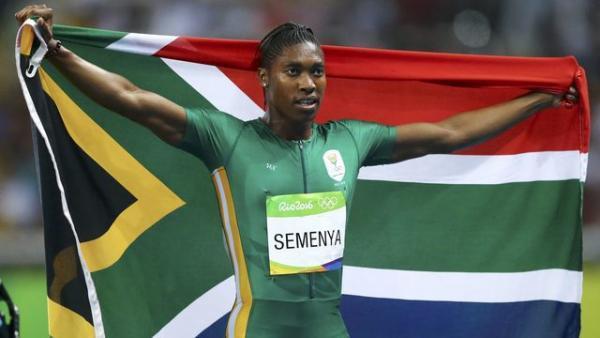Celebrating Inclusion: Caster Semenya’s Momentous Win in European Court

In a landmark decision, the European Court of Human Rights (ECHR) has ruled in favor of South African athlete Caster Semenya, granting her a significant victory in her long-standing battle against discriminatory regulations surrounding testosterone levels in female athletes. The court’s ruling marks a crucial step forward in the ongoing debate about gender, fairness, and athletic eligibility.

Caster Semenya Case
Caster Semenya, a two-time Olympic gold medalist in the 800 meters, has faced scrutiny and controversy throughout her career due to her naturally high levels of testosterone. In 2018, the International Association of Athletics Federations (IAAF) introduced regulations requiring athletes with differences in sexual development (DSD) to take medication to lower their testosterone levels if they wished to compete in certain women’s track events.
Semenya, along with other affected athletes, challenged these regulations, arguing that they violated their human rights and amounted to unfair discrimination. Semenya’s case has been fiercely debated and has raised important questions about the intersection of gender, biology, and sports.
ALSO READ: Top 10 Africans To Watch At The Tokyo Olympics 2021
Caster Semenya Victories
Prior to the recent ruling by the ECHR, Semenya had already achieved significant victories in her legal battle. In 2019, the Swiss Federal Supreme Court temporarily suspended the IAAF’s regulations, allowing Semenya to compete without having to artificially lower her testosterone levels. However, this reprieve was short-lived, as the ruling was later overturned by the Swiss Federal Tribunal, leading to further uncertainty and frustration for Semenya.

The Significance of High Testosterone Levels
The issue at the heart of the Semenya case revolves around the impact of naturally high testosterone levels on athletic performance. Testosterone is a hormone that contributes to muscle mass, strength, and oxygen-carrying capacity, among other factors. Some argue that elevated testosterone levels provide an unfair advantage in certain sports, particularly in events requiring speed and power.
However, the scientific community remains divided on this matter. While it is acknowledged that testosterone levels can influence athletic performance, the extent to which this advantage exists and whether it justifies regulating athletes with naturally high testosterone levels is a matter of ongoing debate.
The European Court of Human Rights’ Ruling on Caster Semenya
On July 11, 2023, the European Court of Human Rights delivered its verdict in the case of Caster Semenya, concluding that the regulations imposed by the IAAF were indeed discriminatory. The court found that the regulations violated Semenya’s right to respect for her private life and were disproportionate.
The ruling is significant not only for Semenya but also for the broader implications it has on the future of gender regulations in sports. It highlights the necessity of carefully balancing fairness in competition with the protection of individual rights. The court’s decision emphasizes that the human rights of athletes should be respected, and any regulations imposed must be proportionate and based on sound scientific evidence.
What next following Semenya Court Ruling
While Semenya’s victory at the ECHR is a significant step forward, the debate surrounding testosterone regulations in sports is far from over. It is likely that this ruling will prompt further discussions and potentially lead to revisions in current policies. Striking a balance between promoting fair competition and recognizing the diversity of human biology will continue to challenge sports governing bodies worldwide.
Caster Semenya’s case has transcended the realm of athletics, becoming a symbol of the struggle for equality, dignity, and respect. Her fight against discrimination has not only paved the way for future athletes facing similar challenges but has also sparked important conversations about gender, identity, and inclusivity in sports.
As the world celebrates Semenya’s victory, it is crucial to recognize that the pursuit of fairness in sports must never compromise the fundamental rights and dignity of individual athletes. Only through open dialogue, scientific research, and a commitment to inclusivity can we strive for a future where sports can truly be a platform for all athletes to showcase their talents and abilities, regardless of their biological characteristics.





Responses